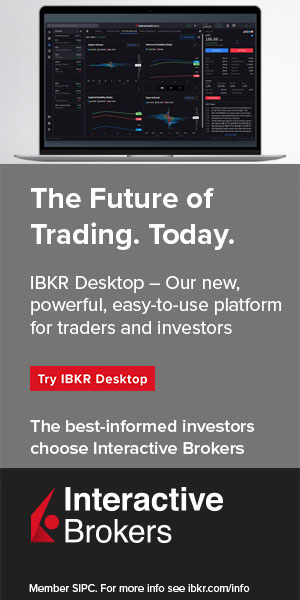In today’s volatile financial climate, diversifying your investment portfolio beyond standard stocks and bonds is not just a strategy, but also a need for many investors who want to minimise risk and increase rewards. This article examines the multitude of options available to those looking to increase the size of their investment portfolios.

It offers insightful analysis and practical advice on managing the complex world of alternative investments, which includes everything from private equity and cryptocurrencies to real estate and commodities. This assists both novice and experienced investors in finding paths that align with their financial goals and risk tolerance.
What Are Alternative Investments?
A wide range of assets that don’t fit into the conventional categories of stocks, bonds, and cash are represented by alternative investments. These investments might include commodities, real estate, hedge funds, private equity, and even collectibles. They are frequently used for portfolio diversification and risk management.
When investors investigate these unconventional paths, they frequently look for special chances that provide not just profits but also a degree of exclusivity and thrills akin to the exhilaration experienced at popular Casino Rewards casinos. These locations are well-known for their captivating ambiance and have evolved into a symbol of the high risk, big return nature of alternative investing.
Conduct Thorough Research Before Investing in Alternative Assets
It’s important to do extensive study before making any alternative investments in order to comprehend the special qualities and hazards connected to each kind of asset. Alternative investments, in contrast to standard investments, can include complexity, such as illiquidity, greater entry fees, and opaque pricing, necessitating careful decision-making. Prospective investors have to take into account the state of the market, past results, and these assets’ regulatory framework.
Speaking with advisers or financial specialists who focus on alternative assets might yield insightful advice. In addition, choosing the appropriate alternative assets that complement your long-term investing strategy requires assessing your own financial objectives and risk tolerance. This upfront effort guarantees a knowledgeable approach, reducing surprises and putting you in a position to take full advantage of the possible advantages of alternative investments.
The Most Popular Types of Alternative Investments
Real Estate Investments
Because of its potential for capital growth, ability to generate income through rents, and ability to act as a hedge against inflation, real estate continues to be one of the most popular categories of alternative investments. In addition to commercial and residential real estate, this industry is also home to real estate investment trusts (REITs), which enable investors to combine their funds to acquire bigger real estate projects. Real estate provides physical assets and a generally steady investment option with both short-term benefits through rental yields and long-term appreciation, whether one is wanting to purchase, sell, or lease.
Cryptocurrencies and Blockchain Technology
Blockchain technology and cryptocurrencies have become the newest and most innovative options for investors. Since the prices of cryptocurrencies like Bitcoin and Ethereum may fluctuate greatly due to market emotion, technical breakthroughs, and regulatory changes, investing in them presents a high-risk, high-reward opportunity. The technology that powers these currencies, known as blockchain, offers a variety of investment options as it finds use in industries including supply chain management, financial services, and more.
Private Equity and Venture Capital
For individuals wishing to make direct investments in private businesses, from start-ups asking for seed money to well-established businesses trying to grow, there is private equity and venture capital. Due to the fact that success frequently depends on the expansion and profitability of the firm, this investment type is renowned for its high potential returns but also carries higher risks and longer investment horizons. It is a dynamic part of a well-rounded investment portfolio since investors usually profit from eventual exits through sales or initial public offerings (IPOs).
Collectibles and Art
Since this industry attracts to those with particular interests in things like rare coins, antique vehicles, exquisite wines, or artwork, investing in collectibles and art mixes passion with financial gain. These assets have the potential to yield significant profits, but their value is mostly based on market conditions, provenance, rarity, and condition. In particular, the art market is renowned for its exclusivity and substantial appreciation potential—that is, assuming investors possess the knowledge or guidance necessary to make wise acquisitions.
Precious Metals
Gold, silver, and platinum are examples of precious metals that are seen as safe-haven investments and are frequently sought for during times of high inflation or economic turmoil. They can serve as a hedge against currency depreciation and a diversifier for portfolios. They don’t provide returns like other investments, but their inherent worth and widespread acceptance make them a wise pick for conservative investors trying to protect their cash.
Hedge Funds and Derivatives
With the aim of producing large returns, hedge funds provide investing strategies that may involve leveraged, long, short, and derivative positions in both local and foreign markets. Contrarily, derivatives are contracts whose value is based on how well an underlying entity—such as stocks, indices, or interest rates—performs. For individuals with the necessary financial know-how, these products may be utilised for both speculating on future price changes and risk hedging, making them complicated but potentially profitable investments.
The Major Benefits of Investing in Alternative Assets
An investment portfolio may be improved and diversified by investing in alternative assets, which have a number of important advantages. Firstly, the correlation between these assets and the traditional stock and bond markets is often low, which acts as a buffer against market volatility and lowers the total risk of the portfolio. In addition, alternatives like private equity and real estate can provide the possibility of larger profits by accessing possibilities unrelated to the conventional financial markets.
Additionally, they provide greater direct management over investments, as demonstrated by controlling a share in a private firm or real estate developments. Additionally, some alternatives—such as artwork and precious metals—can serve as inflation hedges, protecting buying power in the event that more conventional assets would lose value. All things considered, adding alternative assets to a financial plan may make it stronger and more resilient, which will appeal to people who want to maximise their profits while skillfully managing any dangers.


 Hot Features
Hot Features











